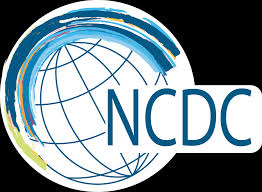Media is known to have unearthed a lot of secrets of various events in the past which many are either not willing to share or not comfortable to talk about. The reasons can be plenty. Whether it is related to match fixing in sports, corruption in politics or insider trading in business, the Press always has a knack of finding the true information or close to the truth to showcase it to the world. After all, this how they will earn their bread and butter.
Now, the Press is not just one entity. There are many players who are constantly competing against each other to make sensitive information public and most importantly, become the first one to tell it. One such strategy employed my media giants is chequebook journalism.
Chequebook journalism is a form of journalism where a journalist, news channel or a print media company pays a person or an organization for the right to publish their story. The stories are such that the media companies think and anticipate that the information will create quite a stir among public and induce them to watch their channel or read their newspaper to know about the story. Ultimately it will increase revenue for media giants. Chequebook journalism can be seen during reporting of court cases where journalists pay witnesses or victim’s family to tell their story. In cases where natural disaster was struck and people who survived it give interviews to news channels for a pre-contracted amount narrating their tragedy. It can also be seen where journalists pay money to an insider source to leak classified information.
Usually people having such emotionally-driven stories and delicate information do not own its copyright or royalty. Yet media companies pay them just for the sake to grab the first-mover advantage of showing or publishing it in their news medium, and get ahead of the competition. Many experts consider it unethical because the story or news was not generated through conservative investigation journalism; rather a “short-cut” was taken. Sometimes, in order to show it legal and ethical at the face value, media companies declare publically that they had paid licensing fees to get the rights for the information.
More often, chequebook journalism may not lead to the actual truth because the source a reporter is paying may tell what the latter wants to hear rather than the clear-as-crystal truth. So the credibility of information always remains a doubt.
Many domains in the world have certain aspects which are morally incorrect but still exist and practiced in reality. Chequebook journalism seems to be one such thing in the media industry. Although, one cannot call such strategy a necessary evil, it is a method a media company is bound to use at some point of time during its existence.
[The 2nd part of the 3-part series articles will be published soon.The 2nd part is titled as ‘The Watergate Scandal’. It is a humble request to my readers to read that article after reading this one.





15 Comments. Leave new
Nicely written. Interesting facts.
well explained
nice article.
This is something very interesting. Good job.
Thank you all four of you.
Interesting article plus well explained.
Interesting. I heard the term for the first time. Still it seems interesting..
Thanks Stephy. I hope it helped you.
nice
Great Work!!!
interesting article!
Great Work 😀
Great efforts.
Thanks Ojasvi.
good one 🙂